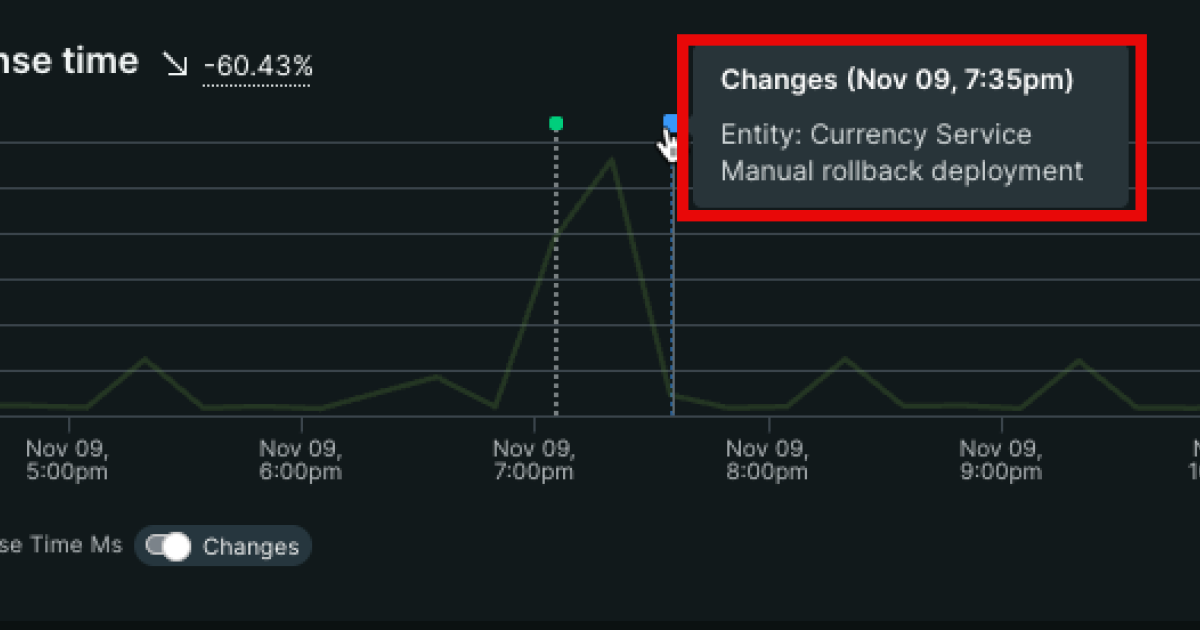
"The race for speed in software development has redefined application resilience. Today,the engineering team's success is measured by mean-time-to-resolution (MTTR). When an app fails, every minute costs lost revenue, customer trust, and team burnout. The challenge lies in change deployments, updates, or code modifications designed to improve systems are often the main cause of instability and downtime."
"To maintain high velocity without sacrificing stability, organizations must turn change into a core part of their observability and resilience strategy. This blog continues from how full-stack observability is non-negotiable, and explores how change tracking helps quickly pinpoint root causes, validate fixes after deployment related incidents are addressed, and build true resilience in fast-paced DevOps environments."
"Today, we rapidly build and deploy, releasing new features and crucial hot fixes.To maintain a competitive edge, organizations are deploying code more frequently than ever. However, this velocity introduces significant risk; a majority of IT outages, for instance, directly stem from code or configuration changes. Untracked modifications lead to complex debugging challenges for engineering teams. Pinpointing the root cause of a failure becomes exponentially difficult after multiple updates. The financial impact is substantial: the Observability Forecast 2025 estimates that outages can cost an organization approximately $2.2 million per hour."
""The path forward is clear: we must transform change from a source of operational risk into observable, manageable data". New Relic's change tracking offers a comprehensive, full-stack solution that provides engineers with complete visibility into every deployment and change across their system. It helps teams accelerate triage and ensure the stability of every release. With this clear insight, you can confidently identify the root cause of issues and understand the real-time impact of a"
Rapid deployment increases development velocity while elevating operational risk, with many outages caused by code or configuration changes. Untracked modifications complicate debugging and lengthen mean-time-to-resolution, increasing lost revenue, customer trust erosion, and team burnout. Outages can cost organizations millions per hour. Transforming change into observable, queryable data enables faster root-cause identification, validation of fixes after deployment, and continuous stability checks. Full-stack change tracking provides visibility across deployments and system changes, accelerates triage, and supports resilient, high-velocity DevOps workflows. Change-tracking tools centralize deployment metadata and correlate changes with telemetry to reduce MTTR and ensure confident releases.
Read at New Relic
Unable to calculate read time
Collection
[
|
...
]